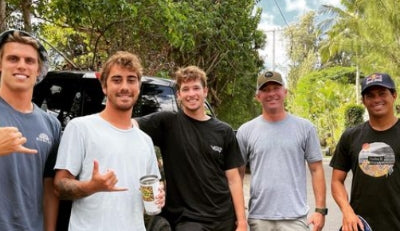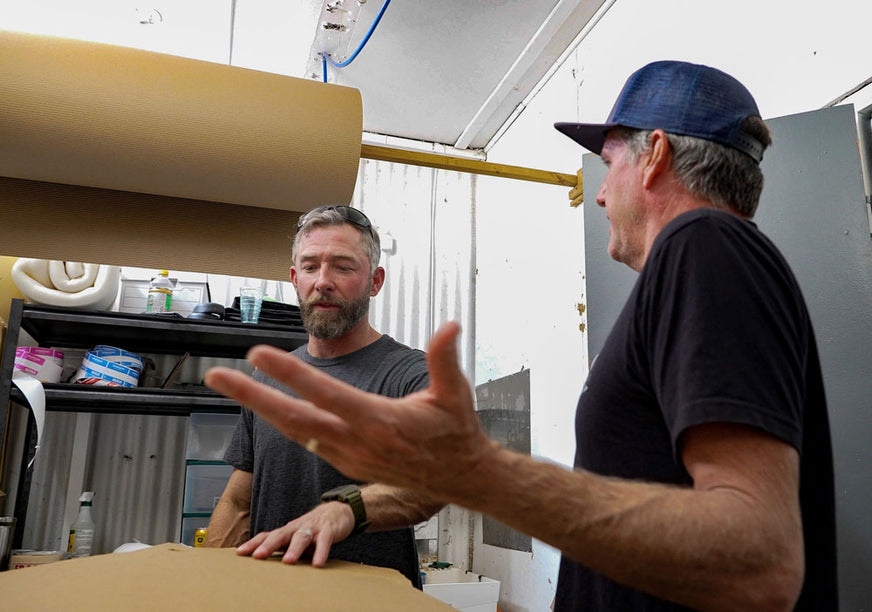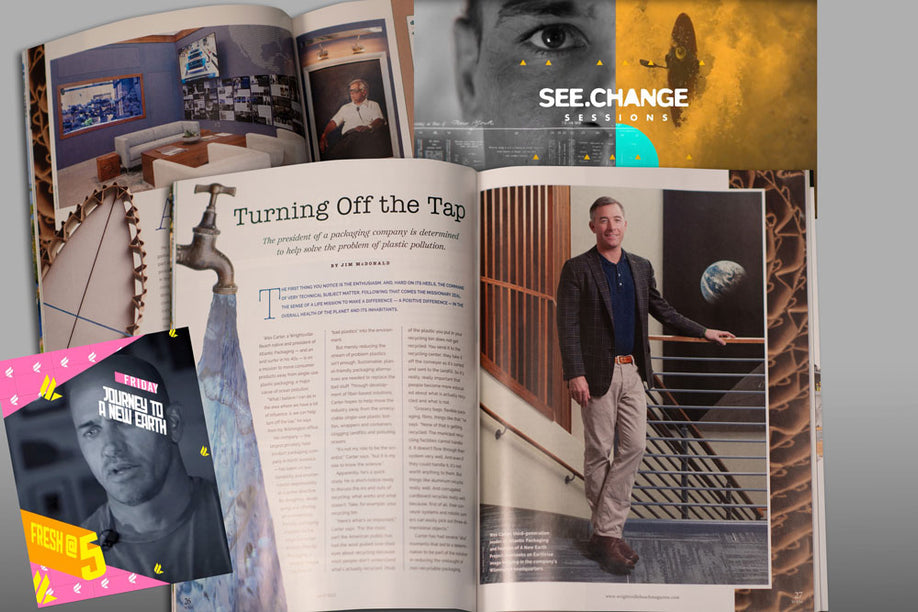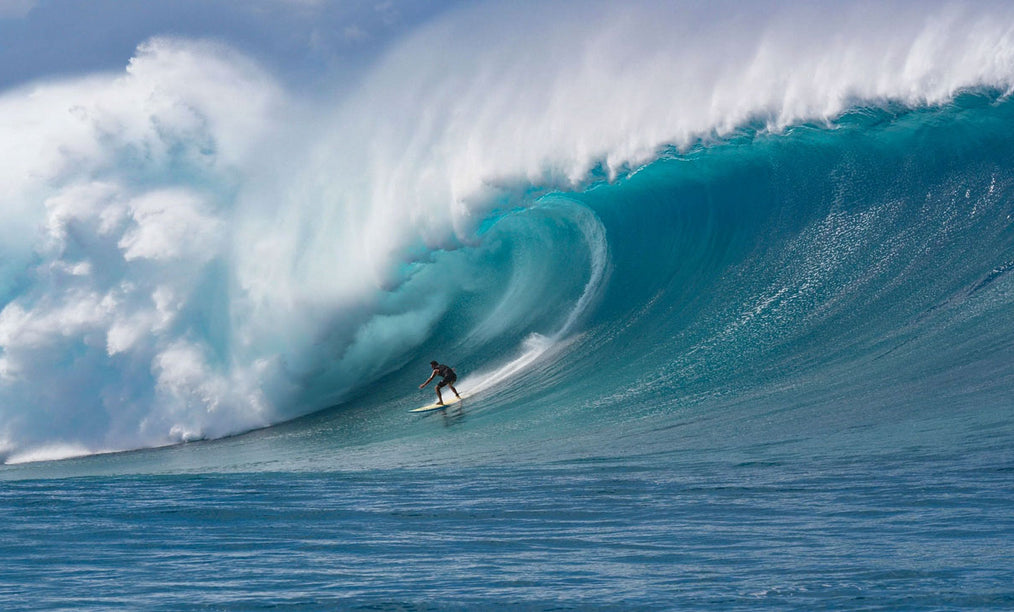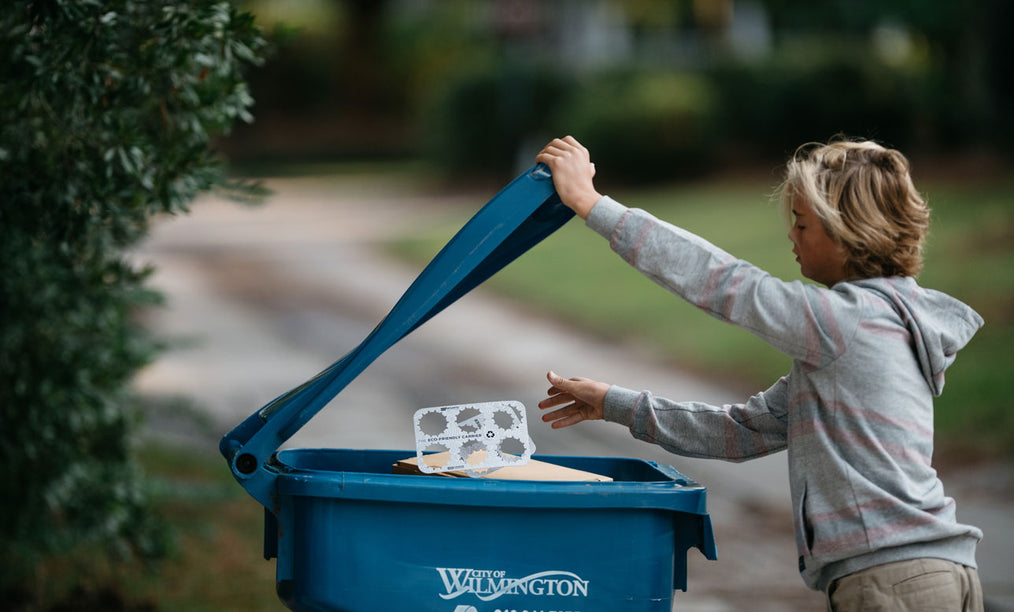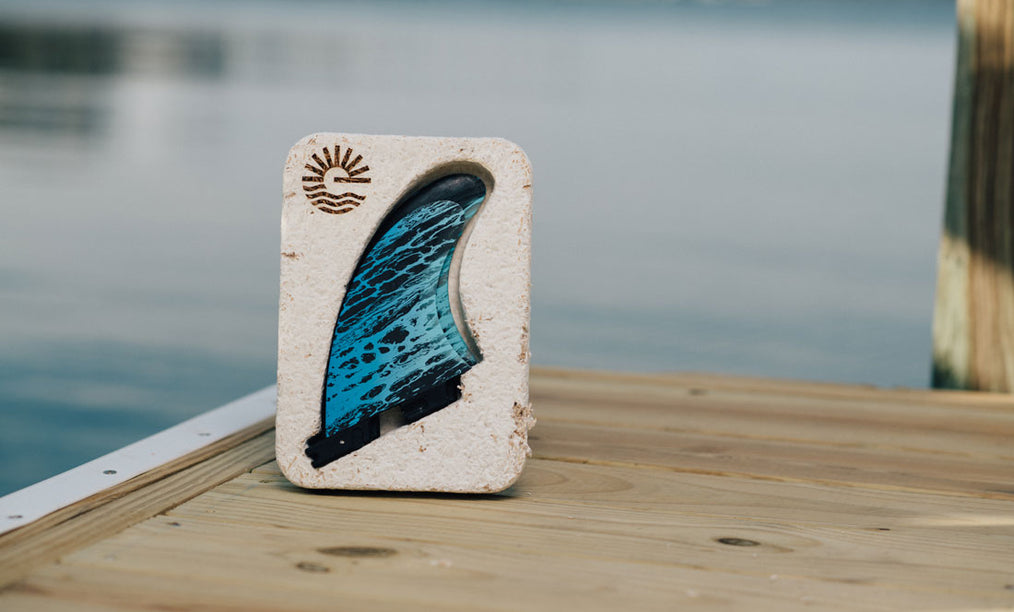Caroline (James) DeLoach is excited about California's new landmark anti-plastic pollution legislation. As the new Sustainability Director for Atlantic Packaging, the largest privately held industrial packaging firm in North America, she will have - at the very least - a front-row seat to the historic discussions of how this very ambitious and important bill is implemented.
And as a lifelong proponent of sustainability and a recent grad of Yale's School of Management (where she earned half of her MBA credits at Yale's School of the Environment) she has high hopes that the bill's execution will match its intent.

"We really need to get this right," she says, regarding the next big hurdle. "My biggest fear is that this crashes and burns in California and then no other state wants to implement packaging EPR. People will look to the U.S. and say, 'Well, if they can't do it, none of us can.'"
With stakes that high, Caroline would love to do more than simply follow the sausage-making proceedings. She'd love to be part of them. And she has every reason to be.
"It's in our interest - in every other producer and brand's interest — to understand these issues really well so that we can make sure that we can incentivize sustainable packaging as well as possible."
California's bill is what's called an EPR (Extended Producer Responsibility) program for packaging. It's in fact the most ambitious packaging EPR program ever passed. EPR programs come in various shapes and sizes, but the gist is always this: producers of products, rather than consumers and taxpayers, are put on the hook to shoulder some (or all) of the burden for managing the waste they create. In short, EPR programs represent a more inclusive "polluter pays" model, one that includes products and packaging in addition to pollution put into the air.
"We really need to get this right. My biggest fear is that this crashes and burns in California and then no other state wants to implement packaging EPR. People will look to the U.S. and say, 'Well, if they can't do it, none of us can.'"
Like Caroline, many believe EPR programs can't come quickly enough. Today, our current recycling system is broken, and the plastic pollution problem in our oceans, lakes and rivers (especially in the global South) is at crisis levels. And yet, to date, the global response has been to create more single-use plastics than ever before.
Last year alone, we created more single use plastics than the entire decade of the 90s.
In 2020, ExxonMobil's only profitable division was the one responsible for their plastic production. Today they're the world's biggest producer of single-use plastics, and many of the world's biggest oil companies are aggressively pivoting to plastic production to compensate for profit headwinds they expect during the clean energy transition.
46% of all plastic waste is packaging related today, and more than 11 million tons of plastic waste enters our oceans each year.
So why is all this happening?
It's happening because there's no financial incentive for today's brands or packaging producers to design with the environment in mind.

For people like Caroline DeLoach, examining the lack of synergy across industries in this linear economy is like watching a slow-motion train wreck. For decades now, she notes, there's been "little to no interaction or collaboration" between producers, waste haulers, material recovery facilities (MRFs), and the packaging industry.
"I think we're heading to 'recycling 2.0'"
And therein lies the rationale for large-scale packaging EPR programs: the only way to incentivize producers to create less waste is to make them responsible for collecting and recycling the waste they create. Only then will they begin to design with the environment in mind.

"I think we're heading to 'recycling 2.0,'" she says. "This is going to be a forcing mechanism for more of that collaboration, because the PRO [Producer Responsibility Organization] is made up of those of us who are actually making and selling packaging, along with the brands."
The addition of a PRO is what separates a packaging EPR bill from a more narrowly focused EPR program like a bottle bill. Where bottle bills exist, consumers simply pay an added fee up front and redeem it later.
But with broader packaging EPR bills, like California's, the system is a much more layered and complex, because the full range of covered products and materials is vast. That means the proper recycling and disposal methods will be more varied and complex, too, which means a far more nuanced fee structure is in the cards.
All those nitty-gritty yet-to-be-determined details will be hashed out by the PRO at the center of California's EPR program. While nobody knows yet who will be calling the shots within California's PRO (PRO proposals will be reviewed between now and January 1, 2024), anyone who sells packaging goods into the Golden State will have to be a member of it once the final decision is made.
By 2027, members will be paying packaging fees into it which will go towards improving the recycling system, as well supplying the state with an additional $500 million per year in remediation costs to clean up existing plastic pollution.

At Yale's School of the Environment, DeLoach studied industrial ecology, which she describes as a fancy term for "the science of the circular economy." It's there she gained an in-depth understanding of materials used in today's goods and how they flow through our economy. She tracked material lifecycles to understand and better quantify their environmental impact and searched for efficiencies that could reduce them.
Meanwhile, in her classes at Yale's School of Management she studied sustainable business strategies, consumer behavior, and how, at the intersection of regulation and business, things tend to get done, or not, and either work, or don't work. EPR programs became a central focus.

She wrote a 29-page paper on the value of EPR programs while completing her MBA. And when she landed back at Atlantic Packaging, where she began as an intern for Wes Carter, the company's President. Upon her arrival, she condensed her Ivy League studies into 23-page deck filled with graphs and charts that even resident bush leaguers could comprehend. Today, her passion, educational expertise, and her career are perfectly aligned.
For DeLoach, finding a company like Atlantic was a dream come true. Her interest in sustainability began all the way back in grade school, where she watched a mini-documentary on the state of landfills that shook her belief system. Realizing that the adults she trusted didn’t have things under control was a wakeup call.
"They were asking the right questions and thinking about sustainability in the most nuanced and intelligent way."
As her interest in facilitating a more circular economy grew, she began to wonder what careers would give her the biggest chance to make an impact. When she internalized the fact that packaging makes up nearly 40% of the waste problem, the answer was staring right at her.
"So from there, I started looking for the packaging companies that actually care about this and are thinking about this intelligently." After some simple Googling, she landed on Atlantic Packaging, because, as she saw it, "They were asking the right questions and thinking about sustainability in the most nuanced and intelligent way."
For Wes Carter, an outdoor lover whose driving force is greening the packaging supply chain he's been a part of his whole life, her impact on him was immediate. "Her passion for sustainability, and commitment to being in a role that allowed her to be totally committed to the mission of transitioning the supply chain--that struck me immediately," he says.
Carter encouraged her to complete her MBA during her internship and let her know the Director of Sustainability role would be waiting for her.

Atlantic Packaging is a 75-year-old company, but its legacy name masks its hidden strength. They don't exactly make packages. Well, they make some, yes, but they're mostly a sales and distribution company, with a state-of-the art Solution Center built in to test and optimize packaging. Their customers include some of the biggest brands in the world, and their relationships run long and deep.
"We can look at each product and ask, 'what makes the most sense here?' 'Who of our strategic partners can we pull in to develop a sustainable solution?'"
When Atlantic can help a global CPG company shift even a single product SKU to more sustainable packaging, the end result can equal millions of pounds of waste prevented from entering the landfills, incinerators, and the environment. That effort is Caroline's primary focus. And she's aided by Atlantic's unique position as "Switzerland" in the packaging space: when the search for a solution begins, she's not bound by what Atlantic makes. As a distributor and sales company, she has the power to identify the most sustainable solution out there. She can tap their network of suppliers, as well as designers and engineers to find the best solution.
"That's what I love to do. We can look at each product and ask, 'what makes the most sense here?' 'Who of our strategic partners can we pull in to develop a sustainable solution?' Wes likes to say, and he's absolutely right, that we can be an impartial arbiter of truth about sustainability."
For DeLoach, that was a huge selling point for joining Atlantic. Truth be told, during her initial interview, she was interviewing Wes as much as Wes was interviewing her.
"We have no skin in the game about which material ultimately wins. We have everything on the table as far as what material is going to be healthiest for the planet."
"A sustainability professional's biggest fear is ending up in a company where we're being asked to greenwash whatever it is the company is doing because that's their employer. And it is much easier to end up in that trap if you're in a company that's married to selling just one material or packaging type."

In the packaging space, Atlantic is Switzerland. "We have no skin in the game about which material ultimately wins," says James. "We have everything on the table as far as what material is going to be healthiest for the planet."
Both DeLoach and Carter know we won't be recycling our way out of the current waste crisis. It's going to take a combination of tools in the tool kit: Reducing the amount of packaging. Designing for better recyclability and compostability. Improving recycling and composting systems. And educating consumers. The funding injection created by the EPR bill and the PRO is intended to address all those needs.
Atlantic has a huge role to play, and given her EPR and packaging expertise, along with her freedom to be independent, don't be surprised if Caroline ends up on the field.
